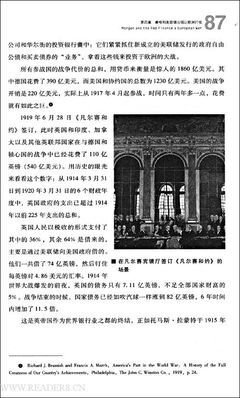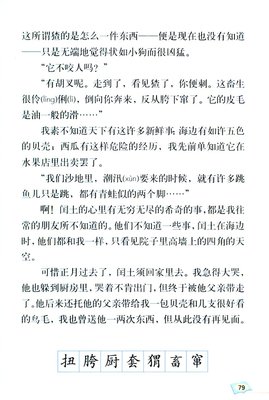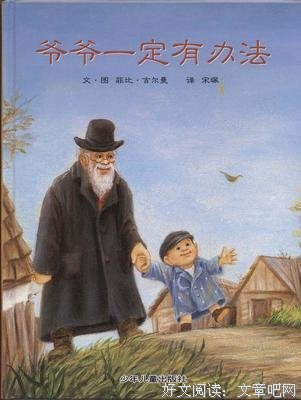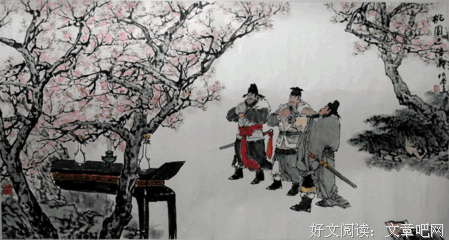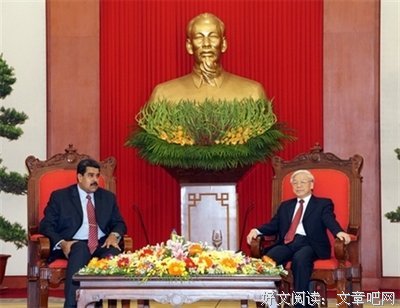
《When Breath Becomes Air》是一本由Paul Kalanithi著作,Random House出版的Hardcover图书,本书定价:USD 25.00,页数:256,文章吧小编精心整理的一些读者的读后感,希望对大家能有帮助。
《When Breath Becomes Air》读后感(一):What kind of life is worth-living?
强烈推荐这本书给所有思考“怎么才能在短暂的人生活的更有意义”的朋友。这是一本非常优美又非常悲伤的书,是作者讲述他从医生罹患癌症短暂一生的自传。当这本书过早的结束的时候,读到最后的部分,我悲伤的哭了好几次。
作者Paul Kalanithi是个非常非常优秀的人,他在Stanford拿了文学本科和硕士学位,之后去Yale的医学院学习,后又回到Stanford开始它神经科住院医的生涯。在他住院医的第七
年,马上就要毕业,大把选择摆在面前,只有35岁的时候,他被诊断肺癌。
书的第一部分讲他是如何发觉自己的病症的。住院医要经受巨大的压力,经常连续工作超过40小时。他和妻子的感情也在高强度的压力下降至冰点。他开始感觉到疲惫,疼痛,体重骤降,虽然感觉不好,但是这么年轻的岁数得癌症的概率太低了,他不敢相信。直到他去纽约同学聚会,在地铁站因为疼痛倒在地上,保安冷酷的让他站起来不要躺在地上,他绝望的对着保安第一次喊出了I got cancer! 病情迅速恶化,他只能完全停下工作躺在病床,连自己拿起喝水杯都很吃力,好难想象短短一周之前,他还在手术台上连续工作了十几个小时。
书的第二部分作者开始回忆他是如何走上医学的道路的。他一直在成为作家和医学的道路上犹豫,他早期的教育全部是文学相关(这也解释了为什么这本书文字这样简洁干练而优美),但是后来越来越多对生命意义的探求,对生与死的思考,让他愿意从头开始拿起手术刀挑战对高难度高强度的神经科领域。他讲述了很多他亲历的病例,在这些讲述中,我感受到了Paul对病人深切的责任感和关心。
《When Breath Becomes Air》读后感(二):人生无常
一年多以前就在斯坦福大学的youtube频道上看到了关于作者Paul Kathathini的简介,当时对他稍稍关注了一下,后来也就忘记了。最近学校发邮件告知大家他的眷属Lucy会来校开一个诵读会,才发现Paul和Lucy都是我们医学院的校友,也让我突然间对他的书产生兴趣。亚马逊的送货很快,两天之后我就拿到了这本书。由于是校友,也同为医学领域的人,他的文字让我倍感熟悉,我在想象我平时日夜奋战的教室,解剖室,图书馆都曾几何时留下过Paul的指纹,这里的空气曾经被他呼吸,教授的指导也曾经被他刻入心里,我也不自觉地把自己带入他的角色,用第一人称感受他的生活,他小时候在亚利桑那的沙漠里探索,他经历残酷的神经外科住院医生训练,他无法忍受背痛在纽约的火车站里躺在过道,他在拿到诊断后和Lucy在医院诊室里抱着痛哭,他告别本来光芒四射却突然黯淡下来的未来,他仪式性地做完最后一台手术,他拒绝呼吸机并说“我已经准备好”接受最后一剂吗啡。
今天跟室友吃饭,他告诉我医院的内科住院总也患了脑癌,我突然间有一种崩溃的感觉,疾病和死亡其实离我们很近,我们作为医者却是免不了某一天同时变为病人,这在我们看来都是难以想象的--明天我就会躺在那张刚刚睡着我的病人的床上?就像Paul写的,作为医学生和医生,我们不问为什么偏偏是我,我们想知道Kaplan-Meyer survival curve的预后,想知道一线二线三线药物的疗效是否能改变这个疯狂下坠的曲线,但是最后我们都要接受那种--我可否完全只变成一个病人的角色。
听完住院总脑癌的消息,我回去把这本书的最后几页读完,原本以为这本书会有始有终,没想到中间就断了,就像Paul的生命嘎然而止,我不由地想象他在写完最后这几个字时的状态,他的背疼得让他无法提笔了吗?还是他突然开始呕吐了?抑或是......?永远的问号。读到Lucy写的后记,在她写到她对着Cady和已经停止呼吸的Paul最后一次唱起了Bedtime表示最后最后的离别,我的眼眶也湿了--就这样的,突然的,终结了吗?
《When Breath Becomes Air》读后感(三):直面死亡
在读这本书的介绍时了解到作者Paul是一名受过顶尖训练的神经外科医生,却在即将开始自己的黄金生涯的时候发现罹患癌症。这样的背景很容易让人以为这是一本回顾自己人生,劝读者思考什么才是人生最重要的(工作,家庭,事业,或者其他什么追求),应该如何度过自己的一生,或者提供一些人之将死其言也善的忠告。但是这本书不是关于这些。
作者Paul Kalanithi,与其说是个医生,不如说是个思想者。从小爱好文学的他虽然生长在医学世家,但从来没有将医学作为自己的终生追求。相反,对于生命和死亡的探索让他选择了医学,并希望可以站在死亡的前沿来获得对于生和死最直接的感悟。这些思考让他对于自己的医生身份有着不一样的理解——人终有一死,作为医生能做的并非救回所有的病人,而是让病人和病人家属更好的理解通向死亡之路,以及对生活的潜在影响。这样的理解会让医生放过自己,也让与病人的互动多了一份人性。
罹患癌症改变了Paul之前的打算,但从某种程度上也许是一种成全。在同时面对得病的确定性与生存的不确定性时,作者精确地描述出了无视-恐慌-接受-漠然的过程。对于疗法的选择和身体的反应,对于主治医生的选择,如何计划、度过剩下的时光,精力和活力如何一点点的被抽走,如何见证女儿的处世。对整个生病过程的细微描述与其说是给我们一个答案,不如说是把所有信息白描的放在我们面前,由读者自己总结。说到底,这本书并不是教我们如何去生,而是告诉我们死是怎样。
最后作者妻子的后记补完了整个死亡的过程。读到Paul和家人共同选择不上呼吸机而结束生命,于是八个月的女儿被带来临终病房,困了,在旁边小憩,又醒了,然后被带回家睡觉,然后阳光从房间里一点点抽离,黑夜来临,Paul呼出最后一口深长的呼吸。同样白描,却是本书最令人动容的一幕。不是所有人都有面对死亡,思考死亡,选择死亡的勇气。这样的经历和这本书对于外科医生Paul是极大的不幸,但对于思想者Paul和畏惧的我们,何尝不是一种幸运呢?
《When Breath Becomes Air》读后感(四):【读书半杯茶】《当呼吸化为空气》- 一个外科医生的生命思考
《When Breath Becomes Air 》
y Paul Kalanithi
保罗医生是斯坦福大学医院的神经外科医生,37岁时因肺癌去世。从确诊到去世,不到两年。他在生命的最后时间,写下了这本自传,并以医生的独特视角,记录自己做为一个病人的经历。其间他对生命、死亡的体验与思考真诚感人。
保罗医生年少时是个聪明的孩子,原本对文学创作情有独钟,对哲学、人生的意义,多有追求。最后决定读神经外科,因为他想知道大脑和思维是怎样工作的,而生命的意义又是什么。
成为实习医生后的第一站,是妇产科。刚上班就碰上一个病例,医生们为了保住一对双胞胎不得不做手术取出尚未足月的婴儿,但终究还是没有保住两个弱小的生命。保罗问主治医生,她是怎么下决心动手术的,如果让胎儿再在母亲身体中多成长几天是不是一个更好的选择?主治医生说,看了监视系统上的曲线,知道胎儿在母体内风险太大。保罗再问,可你怎么知道这曲线足够危险不可以再等等呢?主治医生说:全凭个人判断。这个经历让保罗认识到一个医生的责任。
实习医生的生活是辛苦异常的。有一次,他的一个同事连续几天值班没有睡觉,快要下班时来了个紧急手术,要为病人做胰腺肿瘤切除。这种手术时间很长、很复杂。手术开始不到十五分钟,保罗看见他的这个同事在手术室外哭。原来,这个实习医生累坏了,手术前竟然心里说:"老天,我太累了,但愿癌症也经扩散(这样就没法手术了)。"病人腹腔切开后,果然癌已扩散到不可挽回的地步,只好把伤口缝合,手术取消。这位实习医生先松了口气,然后就感觉到了无以名状的羞耻。保罗的一位好朋友,更是因为病人一次手术后的复发症而不堪压力,跳楼自杀。保罗医生也有自己的挣扎。有一次,保罗正在吃冰淇淋时来了个危急病人,一阵忙碌之后,病人没救过来,他把吃了一半的冰淇淋放进冰箱冷冻一下,拿起来再吃,竟然还觉得味道不错。他突然想到,这几年自己的道德底线是不是在大幅度倒退。
实习医生的工作,让他认识到,不光是与死亡面对面,制服它,不眨眼。一个好的医生,更是要明白生命的意义何在;一个神经外科医生(常要动脑外科手术,风险大),更要知道什么样的生命是值得生活下去的。医生治病救人,不错,但人总有一死,医生要能帮助病人、亲友理解生死、病痛。医生既要与死神战斗,更常常要做死神的信使,当手术刀不管用了,医生的话语就成了他最好的武器。医生首先要把病人当人对待,然后才是病人。
几年的实习,让保罗从一个连缝线都被别的医生剪掉重来的新手变成了一个优秀的神经外科医生。七年的实习期快结束了,他工作出色,斯坦福大学医院更是开辟了一个新的领域,差不多是为他量身打造,势在必得。而毕业后,他的收入将是实习医生的6倍,也不用再这么辛苦了。
就在这时,他发现自己身体常常疼痛,每天不得不吃大量的止痛药。这个并不少见,外科医生,特别是实习医生工作时间长,常常有这个问题。去查也没查出来什么。但疼痛越来越重,他的身体越来越虚弱。医生的本能告诉他这应该是大病,是癌症。而工作的压力,使他与妻子的感情发生问题,在一次赌气出门的时候他终于坚持不住,提前回家接受检查,确诊为四期肺癌。
死神,这个保罗天天打交道的恶魔,终于降临到他自己身上。
36岁的人,肺癌患病率只有千分之一,而且大多可以治好。保罗被安排住院。同一个房间里,原来他是医生,现在是躺在床上的病人。静脉滴注,这么个稀松平常的小事,今天他才第一次知道,原来病人能够"尝到咸味"。
保罗是专家,他问医生自己还能活多久,他的医生却不告诉他,只是要求他仔细思考生活什么对他最重要,好据此采取相应的治疗方案。保罗,这个一直对生死的意义执着追求的人,找来所有他能找到的关于生命意义的书,试图从中找出答案。"我坚持不住了。我要坚持下去。"(I can"t go on. I"ll go on. "),这句Samuel Beckett 的名言让他从一次次的难以承受的巨痛中挣扎出来。他与妻子决定要一个孩子。他在完成初步治疗,病症稍有减轻的时候坚持回到手术台,哪怕是第一个手术因为虚弱呕吐而不得不由别人完成。
保罗认识到,与死神的争战,是一整个痛苦的过程。人们常说的面对痛苦的五个步骤:否认,愤怒,讨价还价,沮丧,接受,他都经历了,但在他却是反过来。做为医生,他很清楚自己的病是真的,从而沮丧,试图了解自己还有多少时间以便决定该做什么,但又念念不忘"生命的不公平"(千分之一,怎么是我?)。
科学的进步是巨大的,连保罗医生自己都吃惊如今医疗的进展,但科学却没有办法教我们如何面对希望,恐惧,仇恨,美好,荣誉,虚弱,努力,苦难,美德。
保罗的父亲母亲是第一代印度移民,信奉基督教。保罗认为旧约圣经和新约圣经之间有一个张力,旧约多讲的是公义,而新约中讲的是怜悯,"耶稣的中心思想,我认为,就是怜悯总是胜过公义。"确诊之后,保罗重回基督教的中坚价值观:牺牲、重生、谅解,因为"我发现它们是那样的吸引我。"
保罗的治疗在初期有效果,但很快就复发了。当他看见照片上的阴影时,不再愤怒,也不再害怕,他就是他自己。化疗之后,时间也变成了双刃剑:每一天都比前一天感觉好些,因为药的副作用减少些,但他知道,每一天都离死亡更近。时间不再流动,而近乎静止。
在他生命的最后时刻,他拒绝把身上插满管子。8个月大的女儿给了他无限的喜悦。在急救室停止维持他生命的那天,已经睡觉了的女儿被叫醒来和他道别。女儿不吵不闹,小小的年龄自然不知道这是最后一面。家人一一告别,妻子拉着他的手,和他一起躺在病床上。
保罗医生于2015年3月9日去世。
这本书,保罗医生没能写完。他去世后妻子将它整理出版。保罗的行文非常优美,但能看出有些地方更像提纲,让人遗憾。他的妻子写的后记也非常感人。
I can"t go on。I"ll go on。
生命之重,值得我们善待生活中的每一天,每一个人,也包括家人,也包括自己。
推荐这本书。
高嵩 4.11.2017
《When Breath Becomes Air》读后感(五):记录一些quotes
When Breath Becomes Air 的作者的思想非常有深度,在读书的最后我记录下几个我最爱的quotes,作为他全书一些main themes的反映。
“I still felt literature provided the best account of the life of the mind, while neuroscience laid down the most elegant rules of the brain.”
作者在最开始的时候提到了他是如何make connection between two subjects he like, 也就是literature和neuroscience。同样是发生在人类脑子里的事情,一个是极度感性,捉摸不定,情绪化的表达——文学。而这种表达的原产地又来自自然中最精准理性的产物——人脑。一门人文学科和一门科学学科就这样被作者找到了一个微妙又有趣的联系,让人不禁感到学科间共同性的迷人。同时,也让我们理解到他如何同时对两个看似风马牛不相及的学科怀有难以割舍的爱。
“I was not yet with patients in their pivotal moments, I was merely at those pivotal moments.”
“with” 和“at”, 一句话,一个介词的区别,却定义了两种不同的“医生”角色——又是理性和感性的探讨。医生是仅仅作为一场病症的冷静的而学术的诊断者,身处于病患的场景中,却仍然是旁观者。亦或是用感性的眼睛去感受,设身处地地为他们考虑,不仅是身体上也是精神上陪他们走过这段旅程?这其实是一个艰难的抉择。作者选择了当后者,也就是他选择了挑起和他的病人一样的痛苦。每场死亡对他来说不再是一笔“确认死亡”的记录,而是一个真实可感的生命的消逝。这意味着每天,每周,每个月,他都面临着普通人只会在家人重病时难受的巨大压力。但是,选择做一个完全抛弃感情因素的医生呢?也许治疗的手段会更加客观,他也将不再承受那么多的痛苦——可当一个由你把控的生命与你无关了,你还会在乎吗?
“He who should teach men to die would at the same time teach them to live.”
学会死亡的同时你学会活着。我之前从来没有在这个角度想过问题,对老去和死亡这个概念,直到现在想起还是唯有两个字,恐惧。可是完全逃避死亡话题的我们,能真正学会活着吗?另一个相关的quote是,“The question is not simply whether to live or die but what kind of life is worth living. What makes life meaningful enough to go on living?” 作者提到,医生不是死亡的敌人,而是死亡的使者。他意图教会每个人学会接纳死亡,成为他们“approaching deadline”中的一部分;然后带着这一部分,继续做选择,继续努力做一个“正常人”——去活得有意义。每个人都要面对死亡,可大部分人都觉得,那是一件将来时的事。唯有当死亡不再是will come而是coming,“生命”这两个字才开始散发前所未有的光芒。如《遗愿清单》中的老人,如作者本人,才开始想起很多未竟的,真正有意义的,发自内心充满热情的事业和愿望。到了将死的那一刻才开始真正活着,或者说,活你想要的人生。为什么?也许是因为年轻健康的我们从来都对死亡掩耳盗铃,唯有铃声大作,即将震破耳膜的那一刻,才幡然醒悟。
还有一个key point是他从医生到患者心态的转变,也是蛮有意思的,特别是关于那个揭示剩余日期的curve,时间关系就不展开了。
《When Breath Becomes Air》读后感(六):life is short
总的来说可以归结为一个学霸医生短暂而辉煌的一生。跟于娟的此生未完成类似,都是顺风顺水的优等生们刚要大展宏图时,被查出生患绝症之后的心路历程。两本的重点不太一样,于娟的书更侧重人情,朋友,家人,孩子,而paul的书更侧对于自己一生的追求。相对而言,我更喜欢paul这本。
在paul刚开始轮岗产科住院医生时,遇到危重的产妇,问主刀医生如何判断何时破腹产,被给予的答案是医生的主观判断。然而他意识到书本上学到的知识并不足以让医生能够判断并做出对于病人可能是影响其一生的决定。他开始意识到,除了数据理论案例分析外,病患的意愿才是最重要的。对于病患来说什么才是最重要的东西,是不可缺失的,赖以生存的,能够彰显自己的的确确活着的,应该作为医生治疗时的优先考虑因素。这个观点和最好的告别一书不谋而合,都提倡有意义的活着,而非仅仅是活着。
aul在得知自己患肺癌后的整个change management也让人印象深刻,别人都是从denial开始,经历anger,bargain,depression到acceptance,他完全相反,一上来就接受了肺癌的事实,在抑郁愤怒后终于决定在肺癌的情况下重返神经外科医生的位置。
life is short,you need to figure out what you want,and insist. dont settle,just live well.
《When Breath Becomes Air》读后感(七):面对死亡也仍是个有趣的灵魂
- If the unexamined life was not worth living, was the unlived life worth examining?
- By the time you finish sewing the top half of the wound, the bottom will have healed on its own! Half the work—very smart!”
- All cancer patients are unlucky, but there’s cancer, and then there’s CANCER, and you have to be really unlucky to have the latter.
- Moral duty has weight, things that have weight have gravity, and so the duty to bear mortal responsibility pulled me back into the operating room.
- Life was lived in the first twenty years and the remainder was just reflection.
- The future, instead of the ladder toward the goals of life, flattens out into a perpetual present.
- “Bereavement is not the truncation of married love,”
“but one of its regular phases—like the honeymoon.
- You can’t ever reach perfection, but you can believe in an asymptote toward which you are ceaselessly striving.
five stages of grief—the “Denial → Anger → Bargaining → Depression → Acceptance
《When Breath Becomes Air》读后感(八):When death ceases to be abstraction...
I finished reading Paul Kalanithi"s When Breath Becomes Air today. I am in awe and admiration when i found out that, when the thought of merging together science and literature, integrating subjective meaning and value with objective epistemology just starts hovering around my inner horizon, still tinge with neonatal bafflement and murkiness, Paul has made such a perfect and heart wrenching exemplar of it, blending philosophical prodding of death, literary reflections with scientific practices and knowledge so seamlessly and artistically.
In the very first beginning, like everyone else, Paul is a toddler, born in the raucous NYC, then he grows up in the desert of Kingman, Arizona, exploring his life in the dusty and stormy yellowness, heeding scorpions on his shoes at anytime, listening and making fun of country facts, and reading and relishing all those high literature of prose and verse assigned by his well educated mother who will not tolerate her children being deprived of the chance of being admitted to a ivy league university. It is the summer after graduation from high school, via a page-turner novel introduced to him by his girlfriend back then, a worldly college student who took a semester off to earn her tuition fee, that aroused his first interest in and idea of blending spiritual quest with scientific researches, a goal which is pictured by Walt Whitman as "spiritual-physiological man".
The death looms large. The time could not be more merciless and despairing, when Paul is about to finish the 7 years of residency with an excellent working record and job offers trickling from all over the states, when he is about to claim the pinnacle of his career, even when he is looking forward to adding a newborn child to the family, he and Lucy and their kid, happily cuddling together, overviewing the best life could offer in front of them. With tumors spreading all over his lungs, ominous as a harbinger of imminent death, he did not combat the tragic news with neither blind faith nor passive numbness. Instead, from the beginning to the end, he pondered hard and unwavering on the question of what is the most important to him? Simply put, what is the meaning of his life?
The answer changes in successive circumstances. First his work. Having described his work as a calling rather than a job, he determined to come back to the normal trajectory of being a life-saving and crisis-solving neurosurgeon, keep bringing consolation and guidance to his patients. Then his daughter Cady was born, which adds a new light of hope and happiness to his limited life, being a father becomes his all new motivation to live. Then, he starts laboring on keyboard, fully aware that though he would not be physically present in his daughter"s growing up, the words and their voices would be his legacy for her, and people he loves. Moreover, he intends to show his readers what would await all of us: life in a second, death in a second. The struggle we made to come into this world, and the tolls and tears when we come out of. Therefore, in this book, death ceases to be an abstraction, a figure of speech, instead, it is flesh and blood, inexorable, egalitarian, unromanticalized, yet deeply humane and empowering. This book, Paul hopes, would better prepare us to embark on that inevitable journey toward the end, that ultimate transformation and transcendence, when breath becomes air, from life to death.
After getting a BA and then an MA degree in English literature in Stanford, considering the answer to the capital Truth, to death itself can never be gained by reading but only by experiencing, Paul departed from the road of the academia of literature for the medical training, determined to confront the death face to face. Yet in his last months of life, he seeks again the comforts and strength in words of some of the best verse and prose produced by the masters before us. As Hemingway neatly put: gain the rich experience, retreat in the cogitate, then write about them. Words become Paul"s medium to convey and understand his direct experience: of living, dying, reflecting the past, coping with the regrets, expressing love and saying goodbyes to the loved ones, all the while staring at death right in the face, frail yet not weak, light of life dimming yet not wavering. Thus, the book in our hands, becomes the utmost valuable scripture, providing guidance, pep-talks, and lively anecdotes to prepare us, in concrete and deeply humane terms, for the ultimate crossroads we would soon reach.
I would like to conclude with the last three sentences of the epilogue written by Lucy, Paul"s wife, Cady"s mother:
"For much of his life, Paul wondered about death-and whether he could face it with integrity. In the end, the answer was yes.
I was his wife and a witness."
《When Breath Becomes Air》读后感(九):Notes from Kindle
1.Only later would I realize that our trip had added a new dimension to my understanding of the fact that brains give rise to our ability to form relationships and make life meaningful. Sometimes, they break.
2.I had come to see language as an almost supernatural force, existing between people, bringing our brains, shielded in centimeter-thick skulls, into communion. A word meant something only between people, and life’s meaning, its virtue, had something to do with the depth of the relationships we form. It was the relational aspect of humans—i.e., “human relationality”—that undergirded meaning. Yet somehow, this process existed in brains and bodies, subject to their own physiologic imperatives, prone to breaking and failing.
3.Words began to feel as weightless as the breath that carried them. Stepping back, I realized that I was merely confirming what I already knew: I wanted that direct experience. It was only in practicing medicine that I could pursue a serious biological philosophy.
4.Even so, that first cut, running from the nape of the neck down to the small of the back, is unforgettable. The scalpel is so sharp it doesn’t so much cut the skin as unzip it, revealing the hidden and forbidden sinew beneath, and despite your preparation, you are caught unawares, ashamed and excited.
5.Eventually, as you complete your assignments by dissecting the median nerve, sawing the pelvis in half, and slicing open the heart, the bathos supersedes: the sacred violation takes on the character of your average college class, replete with pedants, class clowns, and the rest. Cadaver dissection epitomizes, for many, the transformation of the somber, respectful student into the callous, arrogant doctor.
6.Seeing the body as matter and mechanism is the flip side to easing the most profound human suffering.
7.Medical school sharpened my understanding of the relationship between meaning, life, and death. I saw the human relationality I had written about as an undergraduate realized in the doctor-patient relationship.
8.“One day we were born, one day we shall die, the same day, the same second….Birth astride of a grave, the light gleams an instant, then it’s night once more.”
9.Over the next seven years of training, we would grow from bearing witness to medical dramas to becoming leading actors in them.
10.Technical excellence was not enough. As a resident, my highest ideal was not saving lives—everyone dies eventually—but guiding a patient or family to an understanding of death or illness.
11.When a patient comes in with a fatal head bleed, that first conversation with a neurosurgeon may forever color how the family remembers the death, from a peaceful letting go (“Maybe it was his time”) to an open sore of regret (“Those doctors didn’t listen! They didn’t even try to save him!”). When there’s no place for the scalpel, words are the surgeon’s only tool.
12.I had to help those families understand that the person they knew—the full, vital independent human—now lived only in the past and that I needed their input to understand what sort of future he or she would want: an easy death or to be strung between bags of fluids going in, others coming out, to persist despite being unable to struggle.
13.Here we are together, and here are the ways through—I promise to guide you, as best as I can, to the other side.
14.Yet openness to human relationality also carried a price.
15.How little do doctors understand the hells through which we put patients.
16.the awareness of time passing, then surgery felt like the opposite: the intense focus made the arms of the clock seem arbitrarily placed.
17.The secret is to know that the deck is stacked, that you will lose, that your hands or judgment will slip, and yet still struggle to win for your patients. You can’t ever reach perfection, but you can believe in an asymptote toward which you are ceaselessly striving.
18.I was starting to see death as both doctor and patient. As a doctor, I knew not to declare “Cancer is a battle I’m going to win!” or ask “Why me?” (Answer: Why not me?) I knew a lot about medical care, complications, and treatment algorithms.
19.In the face of weakness, determination set in.
20.Lucy and I both felt that life wasn’t about avoiding suffering.
21.Moral duty has weight, things that have weight have gravity, and so the duty to bear mortal responsibility pulled me back into the operating room.
22.It struck me that I had traversed the five stages of grief—the “Denial → Anger → Bargaining → Depression → Acceptance” cliché—but I had done it all backward.
23.The way forward would seem obvious, if only I knew how many months or years I had left. Tell me three months, I’d spend time with family. Tell me one year, I’d write a book. Give me ten years, I’d get back to treating diseases. The truth that you live one day at a time didn’t help: What was I supposed to do with that day?
24.Science may provide the most useful way to organize empirical, reproducible data, but its power to do so is predicated on its inability to grasp the most central aspects of human life: hope, fear, love, hate, beauty, envy, honor, weakness, striving, suffering, virtue.
25.“The ancient covenant is in pieces; man at last knows that he is alone in the unfeeling immensity of the universe, out of which he emerged only by chance.”
26.In the end, it cannot be doubted that each of us can see only a part of the picture. The doctor sees one, the patient another, the engineer a third, the economist a fourth, the pearl diver a fifth, the alcoholic a sixth, the cable guy a seventh, the sheep farmer an eighth, the Indian beggar a ninth, the pastor a tenth. Human knowledge is never contained in one person. It grows from the relationships we create between each other and the world, and still it is never complete. And Truth comes somewhere above all of them, where, as at the end of that Sunday’s reading,
27.Time for me is now double-edged: every day brings me further from the low of my last relapse but closer to the next recurrence—and, eventually, death. Perhaps later than I think, but certainly sooner than I desire. There are, I imagine, two responses to that realization. The most obvious might be an impulse to frantic activity: to “live life to its fullest,” to travel, to dine, to achieve a host of neglected ambitions.
28.Everyone succumbs to finitude. I suspect I am not the only one who reaches this pluperfect state. Most ambitions are either achieved or abandoned; either way, they belong to the past. The future, instead of the ladder toward the goals of life, flattens out into a perpetual present. Money, status, all the vanities the preacher of Ecclesiastes described hold so little interest: a chasing after wind, indeed.
29.“We shall rise insensibly, and reach the tops of the everlasting hills, where the winds are cool and the sight is glorious.”
30.When you come to one of the many moments in life where you must give an account of yourself, provide a ledger of what you have been, and done, and meant to the world, do not, I pray, discount that you filled a dying man’s days with a sated joy, a joy unknown to me in all my prior years, a joy that does not hunger for more and more but rests, satisfied. In this time, right now, that is an enormous thing.
《When Breath Becomes Air》读后感(十):我的读书笔记
art 1
What makes life meaningful enough to go on living?
Virtue requires moral, emotional, mental, and physical excellence.
atients, when hearing the news, mostly remain mute, whether out of dignity or shock, silence usually reigns, and so holding a patient"s hand becomes the mode of communication.
Openness to human relationality does not mean revealing grand truths from the apse; it means meeting patients where they are, in the narthex or nave, and bringing them as far as you can.
Yet, openness to human relationality also carried a price.
cience, I have come to learn, is as political, competitive, and fierce a career as you can find, full of the temptation to find easy paths.
art 2
efore my cancer was diagnosed, I knew that someday I would die, but I didn"t know when. After the diagnosis, I knew that someday I would die, but I didn"t knew when. But now I knew it acutely. The problem wasn"t really a scientific one. The fact of death is unsettling. Yet there is no other way to live.
The word hope first appeared in English about a thousand years ago, denoting some combination of confidence and desire.
Life wasn"t about avoiding suffering.
We build scientific theories to organize and manipulate the world, to reduce phenomena into manageable units.
When Breath Becomes Air经典读后感10篇
http://m.sbbzjw.com/gandongwenzhang/247235.html
推荐访问:whenever
